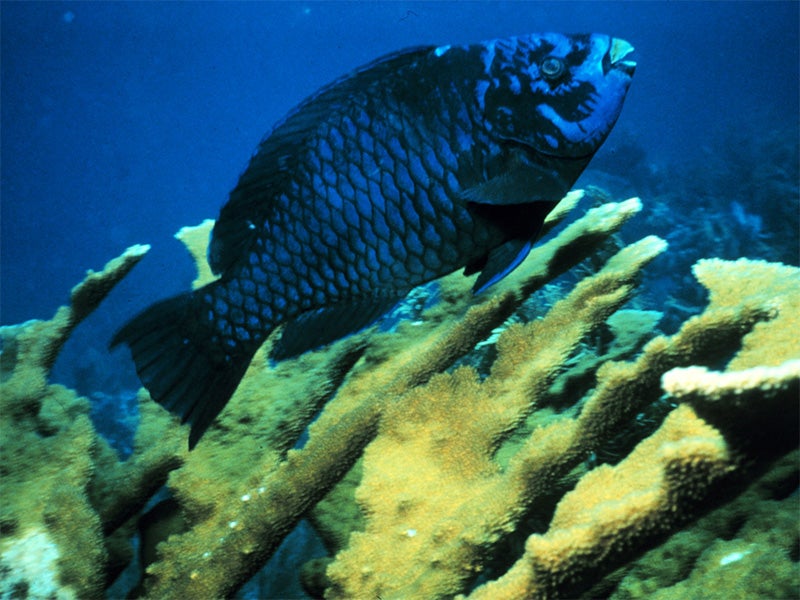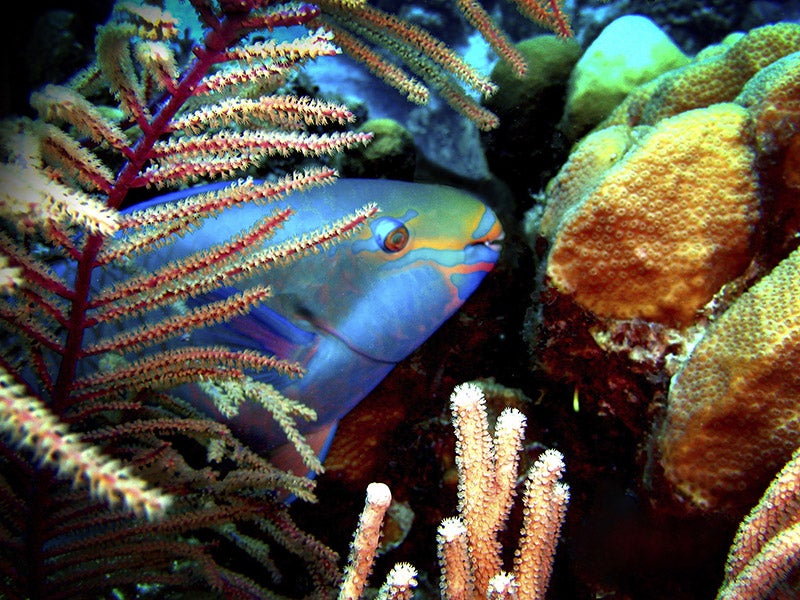Protecting Endangered Corals from Overfishing
Parrotfish and other grazing fish play a key role in promoting the health of federally protected coral species and their reef habitats, yet the government authorized targeted fishing for parrotfish and other algae-eating fish. Earthjustice sued the government for allowing fishing for these species.
Case Overview
Caribbean elkhorn and staghorn corals are perilously close to extinction—they’ve declined by as much as 98 percent since the 1970s. This isn’t just a big problem for the corals. It also impacts numerous species that depend on them, including sea turtles, lobsters and many types of fish.
A key threat to elkhorn and staghorn corals is the fishing of parrotfish. Parrotfish protect these corals by grazing on algae that otherwise would smother the reef; removing the fish allows the algae to dominate reef systems and deny corals the space needed to grow.
The National Marine Fisheries Service authorized fishing on the reefs after developing a flawed plan to monitor the impacts of fishing on the imperiled coral in the U.S. Caribbean. The Fisheries Service concluded that targeted fishing of parrotfish wouldn’t jeopardize threatened corals or seriously harm their reef habitat despite mounting scientific evidence to the contrary. In January 2012, Earthjustice filed suit under the Endangered Species Act on behalf of two conservation groups and an individual, Marydele Donnelly. Our suit sought to ensure that the government addressed the full impacts of fishing on already severely degraded reef habitat.
In October 2013, in response to Earthjustice’s lawsuit, a federal district court ruled that the government had illegally failed to establish an adequate procedure for verifying whether its fishery management plan would prevent excessive harm to the threatened corals. This was a critical victory for elkhorn and staghorn corals as well as the species that rely on them.

Case Updates
Case page created on November 19, 2012.


